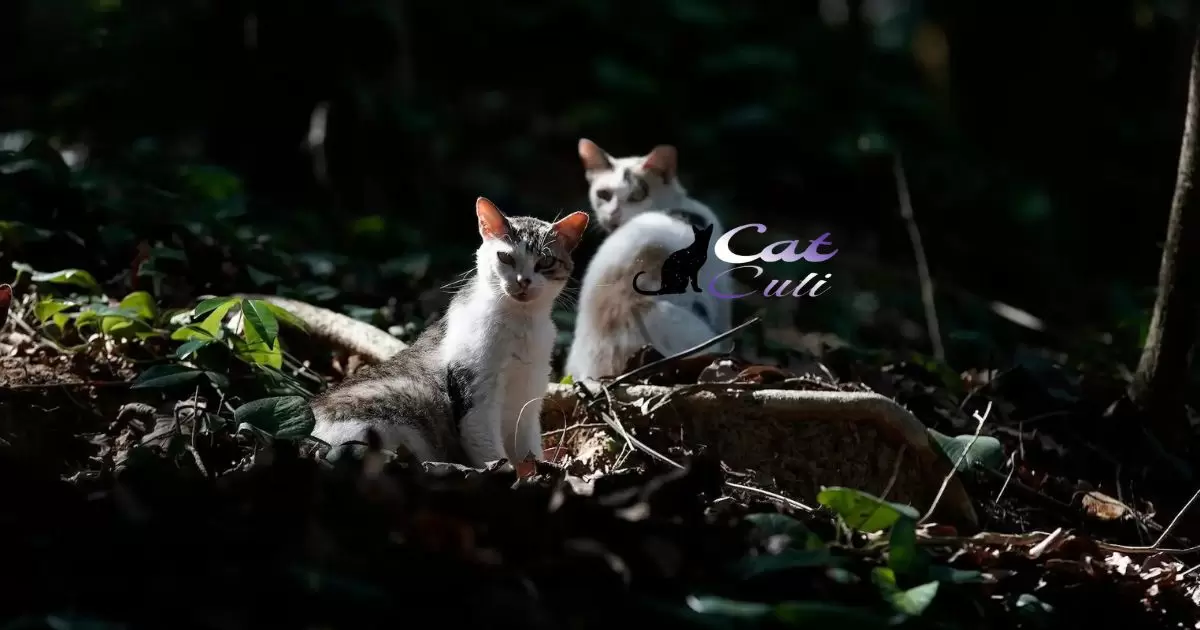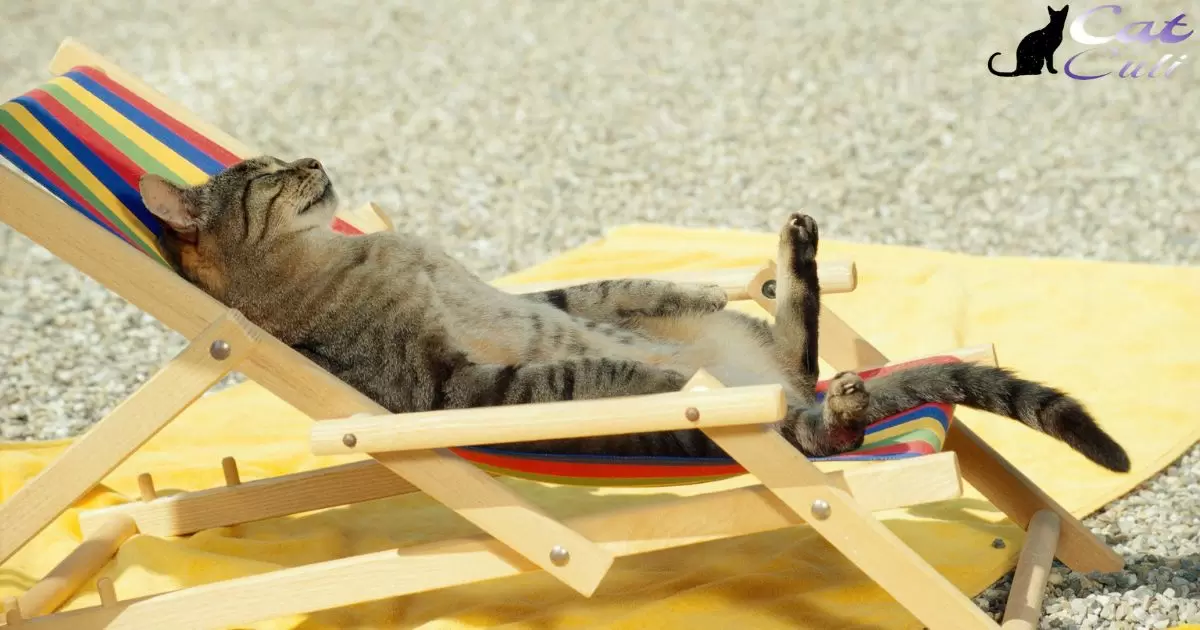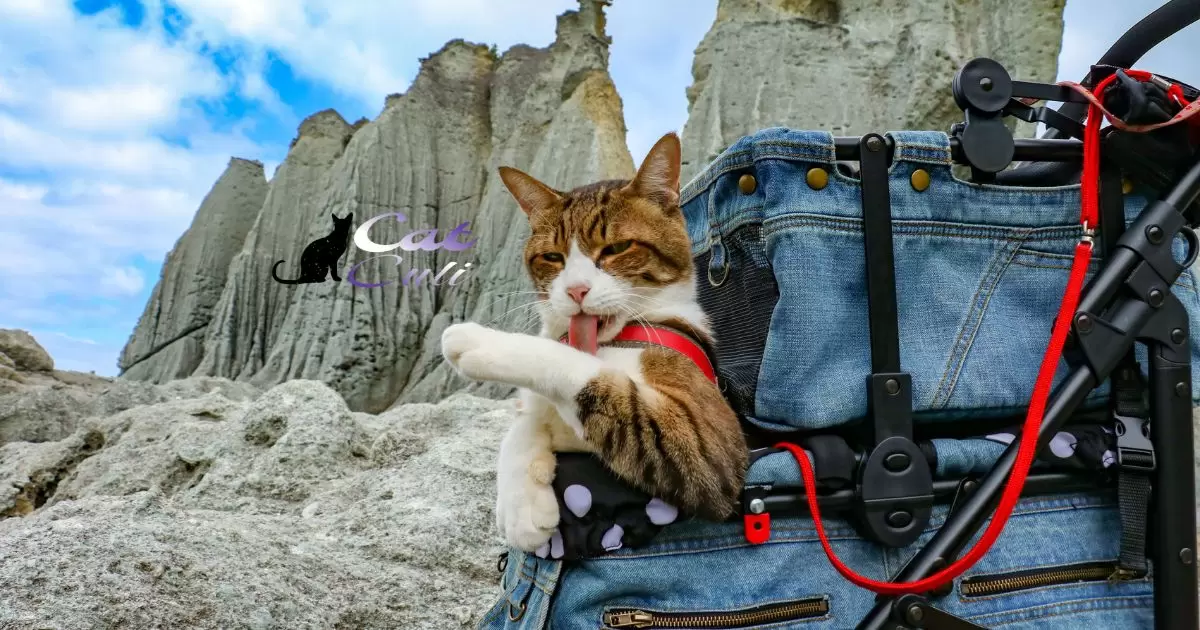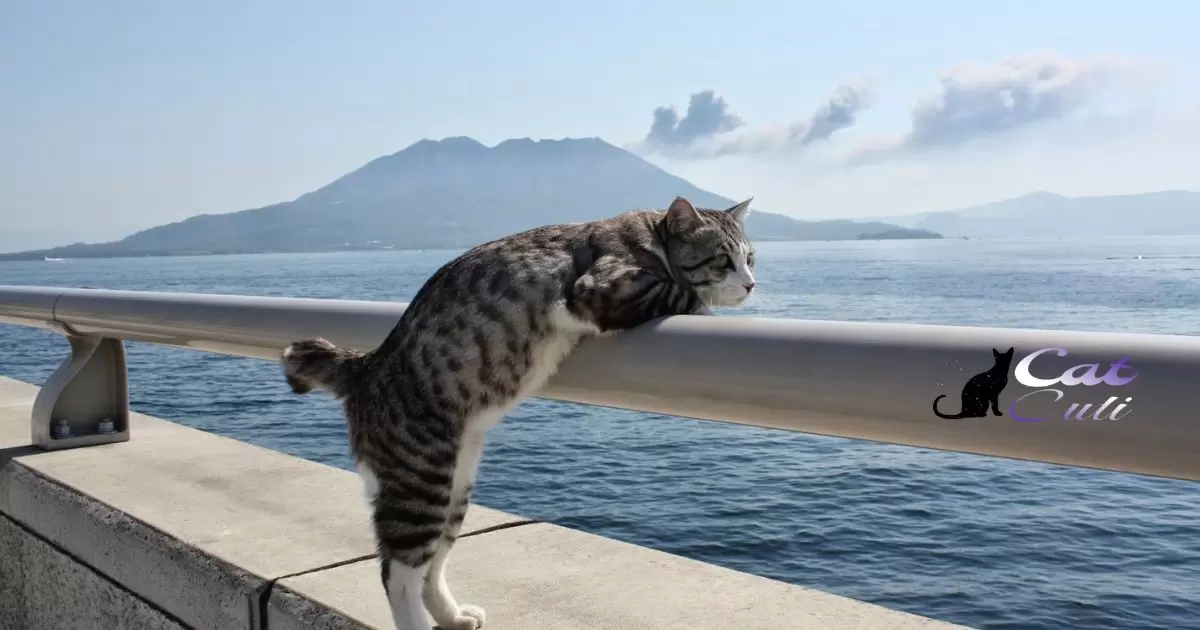When you go on vacation, cats may feel a sense of abandonment. Cats form strong bonds with their owners and may miss their presence. Changes in routine and absence of familiar faces can cause stress. Providing comfort and care upon return helps soothe any anxiety.
Do Cats Feel Abandoned When You Go On Vacation? Unravel the mystery behind your cat’s behaviour during your time away. Explore the subtle signs and discover ways to make their temporary solitude more comfortable. Dive into the world of cat emotions and deepen your understanding of their unique perspectives on your vacation departures.
Discover if your cat experiences loneliness during your vacations.Explores the emotions our feline companions may undergo when left behind. Stay with us to unravel insights into cat behaviour and learn how to make their time without you more reassuring and comfortable. Understanding their feelings can strengthen the bond between you and your beloved pet.
Do Cats Feel Abandoned When You Give Them Away
When you give away your cat, they may experience a profound sense of abandonment. Cats form strong bonds with their owners, and sudden separation can cause distress. They might display behavioural changes, indicating their emotional response to the separation.
To ensure a smooth transition during the rehoming process and keep raccoons away from cat food, it’s crucial to approach the situation with sensitivity. Spend extra time with your cat before the move, providing reassurance and comfort.
Will My Dog Think I Abandoned Him When I Go On Vacation
Heading off on vacation can leave your dog wondering if you’ve abandoned them. Dogs form strong attachments to their owners, so sudden departures can trigger feelings of confusion and anxiety. To reassure your furry friend, maintain a consistent routine before leaving, and arrange for a familiar caregiver.
Your dog will appreciate the effort to ease their worries during your time away.Ensuring your dog doesn’t think you abandoned them requires thoughtful planning. Create a comfortable environment with familiar items, and leave behind a piece of your clothing to provide a comforting scent.
Regular check-ins through video calls or updates from the caregiver can also help your dog feel connected and secure, minimizing any concerns of abandonment during your vacation.
Do Dogs Get Mad When You Leave Them For A Week
When you leave your dog for a week, they might feel a mix of emotions. Dogs are highly social animals, and your absence can trigger feelings of loneliness or anxiety. Maintaining a consistent routine, leaving familiar scents, and ensuring they receive proper care can help alleviate any distress.
Keeping their environment stable and offering reassurance upon your return can strengthen the bond between you and your furry companion.It’s important to note that dogs don’t experience emotions in the same way humans do, but they can exhibit signs of distress when separated from their owners for an extended period.
Do Cats Sense Your Departure?
Ever noticed how your cat reacts when you’re about to leave? Do Cats Sense Your Departure? delves into the intuitive nature of feline companions. Cats, attuned to routines, can pick up on subtle cues signalling your impending departure, showing a range of behaviours from vigilance to mild distress.
Understanding these signs is crucial for creating a stress-free environment. By acknowledging your cat’s sensitivity to your leaving, you can implement strategies to ease their concerns, ensuring a more relaxed and harmonious relationship between you and your furry friend.
Vacation Departures And Cat Emotions
- Vacation departures can impact cat emotions.
- Changes in routine may cause stress.
- Cats may exhibit signs of distress.
- Behavioural changes indicate emotional response.
- Owners should be attentive to cues.
- Strategies to ease cat separation anxiety.
- Providing comfort upon return is crucial.
- Understanding cat emotions fosters a bond.
- Acknowledging feelings enhances owner-pet relationships.
Exploring Feline Abandonment Concerns

Curious about how your cat feels when you’re on vacation? Explore the topic of Exploring Feline Abandonment Concerns to gain insights into your feline friend’s emotions. Learn about signs of distress and discover practical strategies to ease any feelings of abandonment, ensuring a more comfortable experience for your cat in your absence.
Understanding your cat’s emotional well-being is crucial for a strong bond. By exploring feline abandonment concerns, you can actively address your pet’s needs, creating a more secure and content environment even when you’re away.
The Psychology Of Cats’ Vacation Blues
Cats often experience a range of emotions when their owners go on vacation, a phenomenon known as the Psychology of Cats’ Vacation Blues. These feline friends, deeply connected to their human companions, may feel a sense of solitude and stress in the absence of familiar faces and routines.
Recognizing the signs of these vacation blues is crucial for pet owners to provide extra care and comfort upon their return.Understanding the psychology behind cats’ reactions to vacations involves observing behavioural changes and offering reassurance.
By acknowledging the emotional impact of your absence, you can take steps to create a more supportive environment for your cat during your time away. This awareness fosters a healthier relationship, ensuring your cat feels secure and loved even when you’re temporarily gone.
Signs Your Cat Feels Deserted
Observe your cat’s behaviour for clues indicating feelings of abandonment. Signs Your Cat Feels Deserted might include increased meowing, restlessness, or changes in eating habits. Pay attention to these cues to ensure your feline friend feels secure and loved during your absence.
Physical manifestations such as excessive grooming or lethargy could also signal your cat’s distress. By staying attuned to these signs, you can address their emotional needs and create a more reassuring environment, ensuring your cat remains content and comfortable even when you’re not around.
Coping Strategies For Cat Absences
When you’re away, cats may feel a bit lonely. Coping Strategies for Cat Absences involve creating a comforting environment. Leave familiar scents, provide ample food and water, and engage in interactive play before departure. Spending quality time with your cat upon return helps reestablish your connection, easing any stress caused by your absence.
To minimize the impact of your time away, establish a consistent routine. Regular feeding times, scheduled play, and maintaining a calm departure and return atmosphere contribute to a more stable environment for your cat. By implementing these coping strategies, you can ensure that your cat feels secure and cared for even when you’re not around.
Vacation Blues: Cats And Solitude
| Aspect | Information |
| Topic | Vacation Blues: Cats And Solitude |
| Main Concern | How cats may feel lonely during owner’s absence |
| Causes of Vacation Blues | Changes in routine, absence of familiar faces |
| Signs of Cat Stress | Vocalization, changes in eating habits |
| Coping Strategies | Leave familiar scents, maintain routine, provide interactive toys |
| Reconnection upon Return | Spend quality time, offer comfort and attention |
| Long-Term Impact | Addressing anxiety promotes a more content cat |
| Importance of Routine | Consistency in feeding and playtime is crucial |
| Creating a Comforting Environment | Leave familiar items, such as blankets or toys |
| Behavioural Changes | Observe shifts in behaviour as potential signs of stress |
| Veterinary Consultation | Seek professional advice for persistent issues |
Unpacking The Cat Vacation Experience
Explore the emotional journey of cats when owners go on vacation. Cats, known for their sensitivity, may undergo shifts in behaviour during your absence. Unpacking the cat vacation experience sheds light on their reactions, helping owners better understand and address their feline companions’ needs.
Recognizing signs of stress or anxiety in cats is crucial. Through a simple exploration of their vacation experiences, owners can implement strategies to ease potential discomfort. Proactive steps, such as providing familiar scents or arranging reliable care, contribute to a more positive and stress-free cat vacation encounter.
Cat Behavioral Changes During Absence
When you leave, cats often exhibit noticeable behavioural changes. They might become more reserved, displaying signs of stress or anxiety. Some cats may eat less, sleep more, or engage in excessive grooming as a response to your absence.
To alleviate these behavioural shifts, ensure your cat has a comfortable and familiar environment. Leave familiar scents, provide engaging toys, and arrange for a trusted caregiver if possible. These simple steps can help minimize the impact of your absence on your feline friend’s behaviour, ensuring a smoother transition during your time away.
Loneliness Or Indifference: Cat Perspectives
Cats exhibit unique perspectives when faced with solitude. Some may display signs of loneliness, seeking attention and comfort. Others, however, might seem indifferent, masking their emotions behind an independent facade. Recognizing these distinct cat perspectives helps owners respond appropriately to their pets’ emotional needs.
Understanding your cat’s behaviour is key in fostering a strong bond. Pay attention to subtle cues such as increased vocalization or changes in daily habits. Whether your cat expresses loneliness or indifference, being attuned to their perspectives allows you to provide the right level of companionship and care, enhancing the well-being of your feline friend.
Nurturing Your Cat’s Emotional Well-Being
Cats thrive on emotional connection, and nurturing your cat’s emotional well-being is crucial for their happiness. Engage in interactive play, spend quality time together, and create a secure environment to foster a sense of comfort.
Regular positive interactions contribute to a content and emotionally balanced feline companion.Being attuned to your cat’s body language and subtle cues allows you to respond effectively to their emotional needs.
Provide cosy spots for relaxation, offer tasty treats, and maintain a consistent routine to establish a reassuring environment. By actively participating in your cat’s emotional care, you create a strong bond and contribute to a happy, emotionally fulfilled feline friend.
Leaving For Vacation: Cat Perspectives

Heading off on vacation? Ever wondered what goes through your cat’s mind when you’re not around? Leaving for vacation can evoke various emotions in our feline friends. Cats may feel a mix of curiosity, uncertainty, and perhaps a touch of loneliness.
Ensuring they have familiar comforts and a caring environment can go a long way in easing their perspectives when you’re away.From a cat’s viewpoint, your departure disrupts their routine.
Felines thrive on consistency, and sudden changes can stir unease. To minimize stress, leave familiar scents, maintain their feeding schedule, and arrange for a trustworthy caregiver.
Strategies To Ease Cat Separation
Help your cat cope with separation by employing simple strategies. Establish a consistent routine before your departure, ensuring your cat feels secure and anticipates your return. Leave comforting items, like a familiar blanket or toy, to provide a sense of familiarity during your absence.
Engage your cat in interactive play and spend quality time together before leaving. This helps strengthen your bond and ease the transition. Consider having a reliable friend or pet sitter check in on your cat, offering companionship and reassurance. These proactive steps contribute to a smoother separation experience for your feline friend.
Vacation Impact On Cat Relationships
Vacations can have a significant impact on cat relationships. When you leave, your cat may experience a mix of emotions, from curiosity to mild stress. Maintaining a consistent routine, leaving familiar scents, and having a reliable caregiver can help minimize any disruptions and ensure a smoother transition for your feline friend.
Some may seek more attention, while others might become a bit reserved. Recognizing and addressing these shifts in behaviour promptly can strengthen the bond between you and your cat, making the post-vacation reunion a more positive experience for both of you.
Addressing Feline Abandonment Anxiety
Many cats experience anxiety when their owners go on vacation, known as feline abandonment anxiety. Cats form strong bonds with their human companions, and a sudden departure can leave them feeling stressed and lonely.
To address this, owners can employ simple strategies like leaving familiar scents, ensuring a consistent feeding routine, and arranging for a trusted caregiver. These efforts can help alleviate feline abandonment anxiety and make the separation more manageable for our furry friends.
Acknowledging the emotional needs of our cats is crucial for responsible pet ownership. By recognizing and addressing feline abandonment anxiety, we contribute to our cats’ overall well-being and ensure a healthier and happier relationship between us and our beloved feline companions.
Reconnecting With Your Cat Post-Vacation

After returning from vacation, actively reconnecting with your cat is crucial. Engage in playtime, offer gentle petting, and spend quality time together to reassure your feline friend. Re-establishing routines promptly helps your cat feel secure and strengthens the bond between you two.
Avoiding extended periods of isolation post-vacation is key. Cats thrive on routine, so gradually reintroduce your presence by incorporating familiar activities. This proactive approach ensures a smoother transition and reaffirms the trust and connection with your cat after your time away.
Balancing Travel And Feline Companionship
Planning a trip but worried about your cat? Balancing travel and feline companionship is essential for a stress-free experience. Ensure your cat’s well-being by arranging reliable care, whether through a trusted friend, family member, or professional pet sitter.
This proactive approach ensures that your cat feels secure and loved, fostering a harmonious balance between your wanderlust and your feline friend’s need for companionship.
Maintaining a routine is key when balancing travel and feline companionship. Cats thrive on consistency, so try to keep feeding times, play sessions, and other habits as close to normal as possible.
Provide familiar items like their favourite toys or bedding to create a sense of comfort. By considering your cat’s needs and planning ahead, you can enjoy your travels while ensuring your feline companion feels cared for and content in your absence.
FAQ’s
Do cats get sad when you go away on vacation?
Yes, cats can feel lonely and stressed during your absence, missing the comfort of your presence.
Will my cat think I abandoned him if I go on vacation?
Cats may feel abandoned temporarily; ensuring they receive care and attention helps alleviate their anxiety.
Do cats miss their owners on vacation?
Absolutely, cats form strong bonds and may display signs of missing their owners during vacations.
Do cats get upset when you go on vacation?
Yes, cats can get upset due to changes in routine and the absence of familiar faces.
Conclusion
In conclusion, understanding the nuances of how Do Cats Feel Abandoned When You Go On Vacation is crucial for responsible pet ownership. Cats, known for their sensitivity, may experience a range of emotions during your absence.
By recognizing their needs and taking proactive steps, such as arranging reliable care or maintaining a consistent routine, you can ensure a more comfortable and reassuring experience for your feline companion. Fostering a sense of security and love will strengthen the bond between you and your cat, making your vacations worry-free for both of you.








